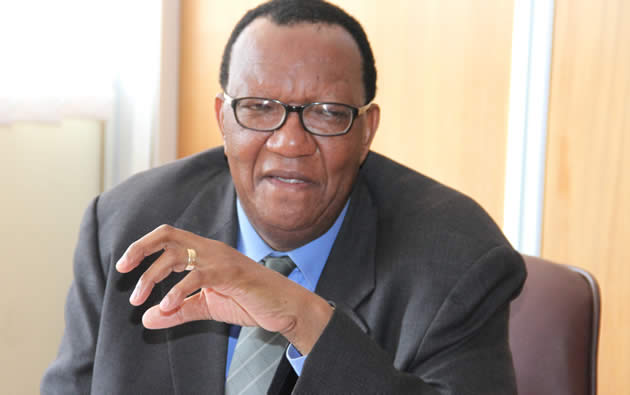EDITORIAL COMMENT: Decisions must be made after thorough consultations

Five days after the introduction of a widely unpopular 10 percent tax on tobacco sales, the Government took the right decision to scrap it on Wednesday.
Farmers had risen against the levy, not only because it posed a serious danger to the viability of their businesses but also that it was implemented before any consultations had been done as what normally happens with significant policies of this nature.
The Government had, on March 31, effected the tax on gross sales of tobacco farmers who do not have clearance certificates. The Minister of Agriculture, Mechanisation and Irrigation Development, Dr Joseph Made, came out strongly against the tax, highlighting that it should not have been effected with no warning. We voiced our concern too in these pages, warning that the levy could kill the goose that lays the golden egg.
“Farmers had made a plea to Government,” Dr Made told our Harare Bureau on Wednesday.
“We had a discussion with [Finance] Minister [Patrick] Chinamasa and I am pleased that we have amicably resolved the matter and reached an agreement that is expected to satisfy farmers and the Zimra. Farmers should not blame Zimra as it was working within the confines of the law. Farmers should go on with their business. Tobacco should continue to come to the floors especially now as we are approaching the Easter and Independence Day holidays.”
We are cognisant of the huge role that the tobacco industry plays in the economy in terms of foreign currency generation, employment creation and so on.
We are also cognisant of the danger that the tax posed to the sector, hence we urged the Government to consider dropping it.
Indeed the levy was going to affect the farming industry, hitting the smaller farmers the hardest — communal and A1 growers who are the biggest volume producers of the crop. This is so because chances are very high that at their level, a communal farmer will not have a tax clearance certificate. Most of them certainly don’t know what kind of certificate it is. What they know is to grow quality tobacco.
If the Government had maintained its position on the tax, it was likely that most farmers without the certificates were going to begin, at this very, very late stage of the marketing season, to look around for their colleagues who have the papers so that they could sell their crop through them.
Those with the certificates were not going to help those without them for free — they were going to charge some fee. Therefore, farmers stood to lose lots of time and money. The conditions were to create the kind of chaos we cannot afford to have in our lifeline agriculture sector.
In welcoming the scrapping of the tax, Zimbabwe Commercial Farmers’ Union president, Mr Wonder Chabikwa, said a coterie of middlemen with tax clearance certificates was going to emerge to fleece growers. Farmers, he said were also unhappy with the timing of the implementation of the tax.
Now that the Government has made the decision farmers had been calling for, we hope that in future consultations would be done before any big decisions are made.
It is often the case that any decision that is made after thorough consultations has high chances of being accepted by everyone who has an interest in it.
In the case in point, we hope that farmers would be asked how they feel about a proposed levy, how they think it would impact on their businesses, and what level of tax they think represents a win-win scenario between them and the State and their views on the timing. The Zimbabwe Revenue Authority would have to explain why the tax is necessary.
If this happens, farmers would at least have an appreciation of what would be taking place. They would then decide if they want to apply for the tax clearance certificates or not, if they still want to grow tobacco with the tax in place and see how they will be able to balance their books after paying the levy.
But we are delighted that the Government took this decision as announced by Dr Made on Wednesday. This restates the point that ours is a government that has the interests of the people at heart, one that does not implement decisions that hurt the wellbeing of the people it is elected to serve.
Now our farmers will deliver their crop to auction floors with a clear mind knowing that they will not pay a new tax after selling their tobacco.










Comments